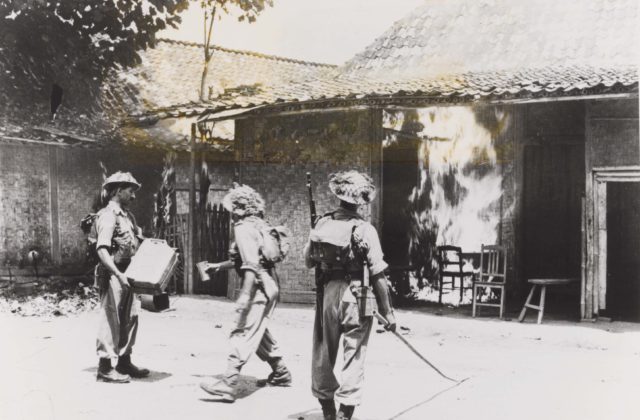Building on the experience of the 2019 NIAS-project and the resulting book Empire’s Violent End, a group of specialist scholars will gather at NIAS for a one-day workshop on Friday 24 June to discuss their ideas and approaches to studying the forms, dynamics, and legacies of decolonization violence. The first copy of the book will be presented to NIAS-director Jan Willem Duyvendak.
Themes that will be explored:
- Involvement in decolonization violence: participants, ‘perpetrators’, pretexts, and targets
- Violence at macro and micro-levels: perspectives and interpretations
- Inscribing violence: bodies, minds, mutilation and marking
- Gender dynamics and sexual violence
- Forced population removal and resource control
- Ecological violence and environmental spoliation
- Regulating violence: rules, laws, and transgressions
- De-exceptionalizing and de-centring : colonial and non-colonial comparability and transimperial violence
About the theme group
This workshop is organised by members of the NIAS theme group in 2018/19 “Comparing the wars of decolonization: Extreme violence during reoccupation and counter-insurgency, 1945-1975”. Click here for more information about the theme-group project at NIAS.
The results of the multi-year research project “Independence, decolonization, violence and war in Indonesia, 1945-1950” have been presented on 17 February 2022. The findings, presentations and responses can be found on this website.
Members of this theme group were Dr. Thijs Zaalberg Brocades and Dr. Bart Luttikhuis, Dr. Pierre Asselin and Dr. Esther Captain, Brian McAllister Linn and Azarja Harmanny, Dr. Natalya Vince and Dr. Stef Scagliola, Dr. Huw Bennett and Professor Peter Romijn, and Professor Martin Thomas and Dr. Roel Frakking.
Partners
The theme group “Comparing the wars of decolonization: Extreme violence during reoccupation and counter-insurgency, 1945-1975” was part of the large-scale research programme Independence, decolonization, violence and war in Indonesia, 1945-1950, carried out by the Royal Netherlands Institute of Southeast Asian and Caribbean Studies (KITLV), the Netherlands Institute of Military History (NIMH) and the NIOD Institute for War, Holocaust and Genocide Studies.




